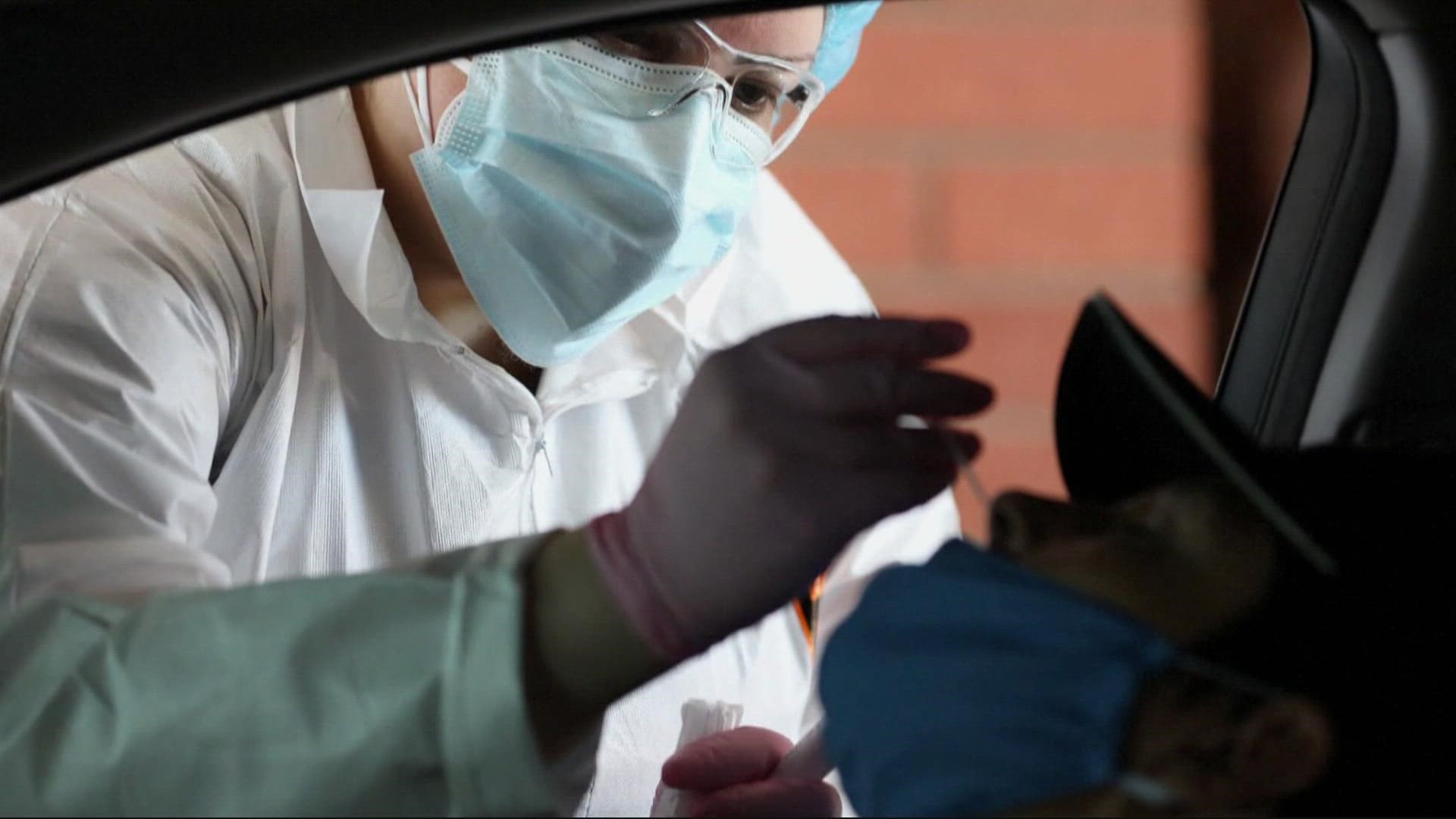PORTLAND, Ore. — Many families are getting ready to travel or host get-togethers for the coming Passover and Easter holidays — and while it may feel like things are starting to get back to a somewhat normal state, COVID-19 is still around.
On Tuesday, KGW caught up with Dr. Peter Graven at Oregon Health & Science University (OHSU), the lead data scientist who provides Oregon state COVID forecasts, for some insight on what we can expect in the coming weeks.
For more than two months Oregon had been seeing a decline in cases, but that’s starting to change. With COVID-19 restrictions loosened, health officials say case rates are starting to tick up in Oregon and in nearly half the country.
“We are seeing signs of some increase. So I think, you know, we are probably going to have another sort of wave now,” said Graven.
While "wave" sounds like the kind of overwhelming surge that Oregon has seen several times before, Graven said that a wave involving the omicron BA.2 subvariant could be different.
“It is more transmissible than the previous one, but your immunity will hold from if you've been previously infected with BA.1 — and if you've been boosted recently you should have some protection,” Graven said.
BA.2 has lately become the dominant strain in Europe, Graven said. The subvariant has now also become the dominant strain in the United States, with hotspots across the country. In the northeast, Philadelphia just reinstated its indoor mask mandate due to increasing cases. The subvariant is dominant in Washington and, according to Graven, that's also the case in Oregon.
“What I'm expecting is probably a doubling to a tripling in case rate over the next month or two,” said Graven.
But Graven said that’s not necessarily cause for panic, since BA.2 doesn’t seem to be causing a surge of hospitalizations.
“If infections are happening and people are able to take care of them at home, that's usually a good sign that we've done our things, including getting vaccinated and other preventive measures,” Graven said.
With the Easter and Passover holidays approaching, the nation’s top infectious disease expert, Dr. Anthony Fauci weighed in this week as well.
“Each individual is going to have to make their calculation of the amount of risk that they want to take in going to indoor dinners and in going to functions,” Fauci said.
National health experts have also said it’s important to keep perspective, and to be careful but not excessively concerned.
Still, doctors say people with a high risk of complications should be more aware of the increase in cases around them.
Some have wondered how likely it is that a mask mandate may be restored.
Graven said that if cases go up quickly, it might mean that a mask mandate would be back on the table — or, he said, more people may also choose to wear masks on their own.
Last month, Oregon Health Authority Director Patrick Allen didn’t rule out the possibility of reinstating a mask mandate or other statewide restrictions if a future COVID surge threatened hospital capacity.

